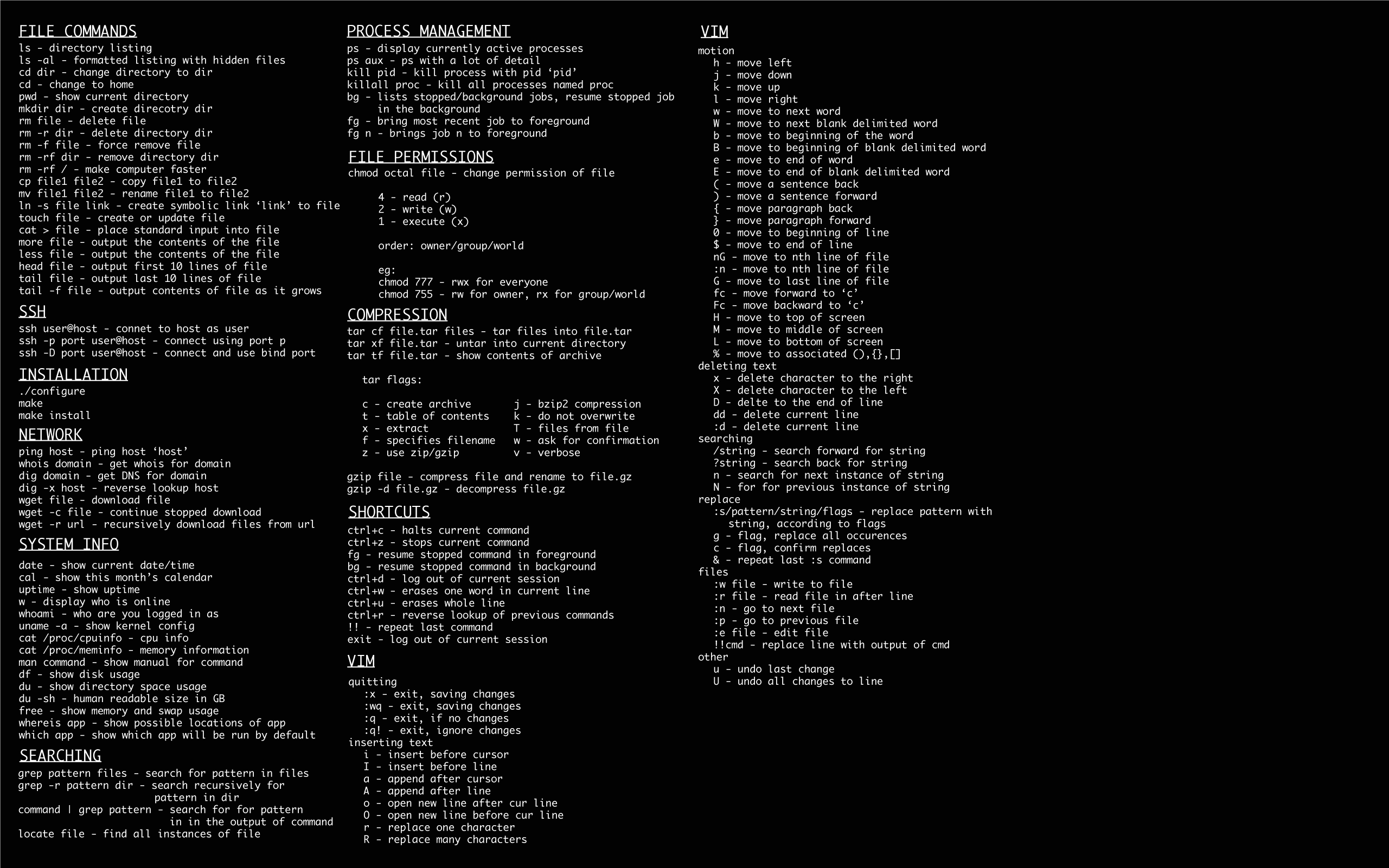
grep :查看文本文件内容linux常用命令,显示包含指定“字符串”的行。
格式:grep [选项] ‘匹配字符串’ 文本文件
例: grep ' root' /etc/passwd
grep -i 'Root' /etc/passwd 忽略大小写
grep -v 'root' /etc/passwd 取反,不包含
grep '^root' /etc/passwd 以字符串root开头
grep 'root$' /etc/passwd 以字符串root结尾
grep -v '^$' /etc/passwd 去除空行的显示
find:按条件查找
根据预设的条件递归查找对应文件
格式: find [目录] [条件]

常用条件表示:
-type 类型(f文件linux常用命令,d目录,l快捷方式)
-name "文档名称"
-size + 文件大小(k,M,G)
-user 用户名
-mtime + -修改天数
例:find /boot -type f
find /boot -name "passwd"
find /boot -name "install*" -type d
find /boot -name "*.txt" -type f -size + 10M
find /var/log/ -mtime +1000 #1000天之前

使用find命令的-exec操作
格式:find -exec 处理命令 {} \;
$ find /tmp -type d -name "dirtoremove" -exec rm -r -f {} \。0 0 * * * root find /mail -name quotawarn -type f -exec rm {} /。方法二:find /app/logs/.log -type f -mtime +7 -exec rm -f {} 。
找到根下的用户xixi文件复制到/root下
wc -l 文件的绝对路径 统计文件有多少行
例: 1. 请统计Linux一共有多少用户?
wc -l /etc/passwd
2.统计/etc目录下,以".conf"结尾的文件有多少个?(不包含子目录)
ls -l /etc/*.conf | wc -l
3.统计/etc目录下,以".conf"结尾的文件有多少个?(包含子目录)
find /etc -name "*.conf" | wc -l

cat 适合查看内容较多的
head -n 看头几行
tail -n 看尾几行
正则表达式:用描述的语言去表达心中所想。
查看网络链接信息
netstat -anptu
-a: 列出所有的进程
-n: 以数字的形式显示
-p: 进程名称及PID信息
-t: tcp连接
-u: udp连接

历史命令
管理/调用曾经执行过的命令
– histroy: 查看历史命令列表
– history -c: 清空历史命令
– !n: 执行命令历史中的第n条命令
– !str: 执行最近一次以str开头的历史命令
历史命令
管理/调用曾经执行过的命令
histroy 查看历史命令列表
histroy -c 清空历史命令
!n:执行命令历史中的n条命令
!str:执行最近一次以str开头的历史命令
调整历史命令的数量:
vim /etc/profile
HISTSIZE=1000 默认记录1000条

